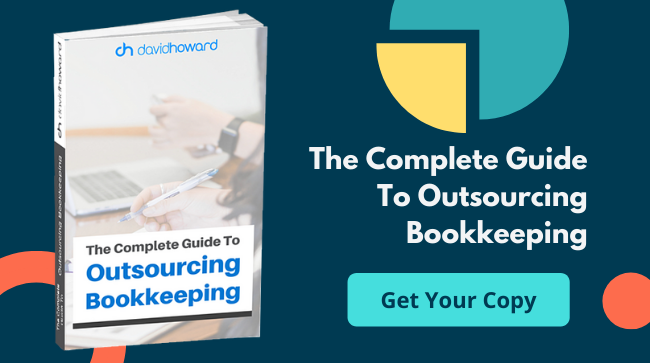5 Bookkeeping Tips For Small Businesses – How To Get It Right

Whether you're a start-up firm, or own an established SME, it's crucial to keep your books in good order. However, if you don't have accounting specialists in-house, bookkeeping can be an intimidating task.
So, what steps can you take to make managing your company finances easier and less time consuming? Here are our top five tips.
1) Organise Your Financial Affairs
If you don't have a dedicated bank account for day-to-day cash flow, savings, and tax liabilities, get these sorted straightaway.
Making as many payments as possible through the main company bank account and using a debit card can really help to simplify the accounting, as systems like Xero can be used to set up ‘bank rules’ to auto process things like fuel payments by recognising the payee on the bank statement which feeds automatically into the software. It also really helps cut book-keeping time not to mix personal and business spending.
Implement practical filing systems for your documents and file things as soon as you've dealt with them. That way, you'll be able to find everything you need with ease. Cloud software will also allow you to attach files to the invoices and payments, so if you can as far as possible avoid paper and use pdf supplier invoices and photos of receipts, this really helps simplify accounting and record keeping, and saves you valuable space with no need to keep any paper records.
2) Plan Ahead
Find out exactly what tasks you need to carry out and the dates by which you need to complete them. For example:
- When does your business's accounting year end?
- When do you need to prepare your accounts by?
- When are your tax and VAT returns due?
- Do you have enough money in the bank to pay your taxes in full and on time?
Proper planning will ensure that you can meet your obligations and reduce the likelihood that your business will incur fines.
Working with us we will always remind you quickly as soon as we can complete your accounts and returns so you are right up to date and away as far in advance as possible of your tax liabilities and deadlines.
3) Stay On Track
Deal with your invoices and receipts on a weekly basis. This will allow you to optimise your cash flow, as you won't incur late payment fees or forget to chase customers for outstanding amounts. You'll also have all the information that you need to hand when you need to prepare your accounts or tax returns. What's more, keeping your financial records up-to-date will make it simpler to identify and rectify errors, and to see how well your business is performing.
4) Use The Latest Technology
Switching from a manual to a digital bookkeeping system will allow you to automate many bookkeeping tasks. This could reduce both your operational costs and the risk that your financial records contain mistakes. Many accountancy platforms will store your company's data in the cloud, so you'll be able to access it wherever you are, from any device. Multiple members of your company will also be able to update your records simultaneously. HMRC is currently introducing a programme which requires businesses to keep digital tax records, so if you haven’t already done so, now is the perfect time to make the change.
5) Consider Using An Accountancy Partner
If you outsource your bookkeeping to a reputable accountancy firm, like David Howard, you'll be able to leave the hard work to the professionals. We can use an array of digital accountancy platforms, and will ensure that your books are accurate and up-to-date. We'll make sure that your company isn't paying more tax than necessary and keep you informed about key regulatory developments.
Even if you look after your own book-keeping, with a little help from us up front we can help you set up your records which will help save you and your staff time, and give you better reporting information . It will also mean records and reports are accurate and will save time and money on completion of year end accounts and make sure that you are making the best business decisions based on accurate and up to date information.
Next Steps
At David Howard, we provide a range of tailored accountancy and financial advice services to small businesses. Get in touch today for a free quote, or to discuss your requirements with one of our small business accountants.
Image Source: Unsplash
Posts by Topic
- Accounting Services (58)
- Tax Services (57)
- Tax (50)
- Smart Accounting Services (34)
- Tax Return (29)
- Corporation Tax (26)
- COVID-19 (24)
- sme accounting (24)
- Clients (19)
- Switching Accountants (16)
- VAT (15)
- Making Tax Digital (13)
- News (13)
- Xero (13)
- Dividend Tax (12)
- bookkeeping (12)
- Payroll (10)
- Cloud Software (9)
- Capital Gains Tax (6)
- Inheritance Tax (3)
- Savings (3)
- Benefits In Kind (Employee Benefits) (2)
- Case Studies (2)
- Stamp Duty (2)
- Trust (2)
- Trust Account (2)
- GDPR (1)
- Insider (1)
- Lifetime ISA (1)
- Retirement Savings (1)
- Wear & Tear Allowance (1)

